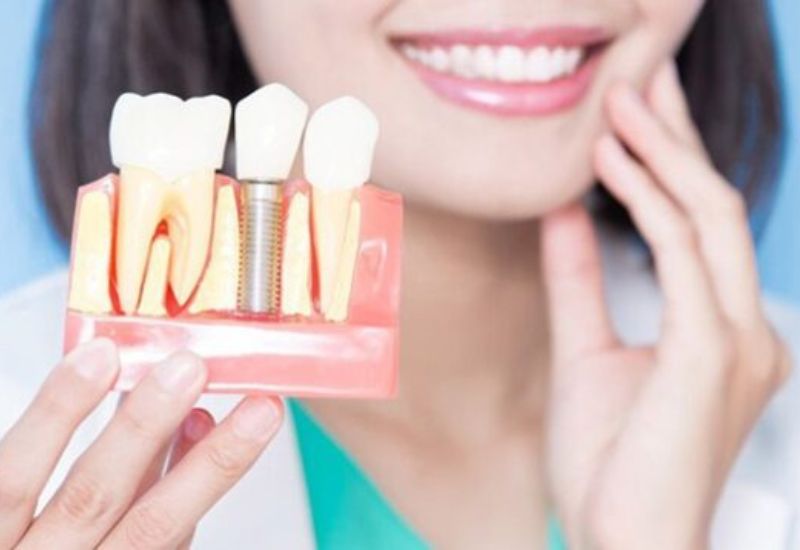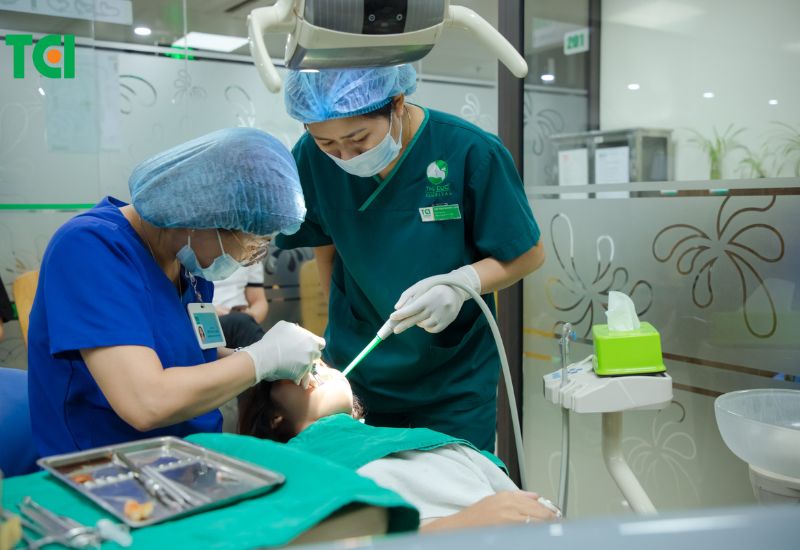Losing natural teeth can significantly impact both chewing ability and appearance. Dental prosthetics, such as removable or fixed dentures and dental implants, offer effective solutions to restore these functions. However, proper denture care is essential to ensure durability, comfort, and overall oral health. This guide provides key recommendations for patients who have received dentures and are looking to care for them correctly.
1. Why Denture Care Is Important
Denture care plays a crucial role in preventing complications such as gum infections, bad breath, plaque buildup, and damage to remaining natural teeth. Neglecting proper hygiene can lead to inflammation, discomfort, or even reduce the lifespan of the prosthesis. Common problems due to poor care include:
– Gum inflammation: Caused by bacterial accumulation around dentures.
– Decay of adjacent natural teeth: Especially when plaque is not effectively removed.
– Loose dentures: Over time, jawbone structure may change, requiring adjustments or replacements.

Proper oral care after getting dentures helps prolong their lifespan and maintain their durability.
2. Cleaning Removable Dentures Properly
Removable dentures are convenient but require daily cleaning to maintain aesthetics and function.
2.1. Choose the Right Tools
Use a soft-bristled toothbrush and non-abrasive toothpaste to avoid scratching the denture surface. Clean all areas including the inner surface, outer surface, and chewing surfaces.
2.2. Soak Dentures Overnight
Soak the denture in a special cleansing solution or saline water at night to eliminate bacteria and soften plaque. This helps preserve moisture and prevent the denture from becoming brittle or deformed.
2.3. Protect Natural Teeth and Gums
Even when wearing dentures, natural teeth and gums need proper care. Brush at least twice a day, floss regularly, and gently massage the gums to improve circulation and maintain gum health.
2.4. Remove Dentures While Sleeping
Wearing dentures overnight can strain the gums and increase the risk of fungal infections. Remove them before bed, clean thoroughly, and store in a hygienic container with a soaking solution.
2.5. Schedule Regular Dental Check-Ups
Visit the dentist every 3–6 months for professional cleaning and to check for any denture-related issues such as looseness, wear, or inflammation.
3. Caring for Fixed Dentures and Implants
Fixed dentures, including dental bridges and implants, require a slightly different care routine.
3.1. Daily Oral Hygiene
– Brush teeth at least twice a day using fluoride toothpaste and a soft-bristled brush.
– Use dental floss designed for implants or bridges to remove plaque between teeth.
– Rinse with alcohol-free mouthwash or saline solution to reduce bacteria and prevent bad breath.
– Consider using a water flosser to clean hard-to-reach areas around implants or fixed dentures.

Rinsing with saline solution or alcohol-free mouthwash helps eliminate bacteria and prevent bad breath after getting dentures.
3.2. Maintain a Suitable Diet
Avoid overly hard or sticky foods that could damage the dentures. Minimize consumption of hot or cold items, especially with porcelain crowns. Increase calcium-rich foods like milk, almonds, and salmon to strengthen jawbone health and support surrounding teeth.
3.3. Schedule Routine Dental Visits
Routine examinations help identify early signs of denture wear, inflammation, or loosening—especially for dental implants, which require close monitoring of the implant site and bone condition.

Regular dental check-ups after getting dentures help maintain optimal oral health.
3.4. Avoid Harmful Habits
Poor habits can compromise denture care:
– Don’t use dentures to open bottles or bite fingernails.
– Limit smoking and alcohol, as they may stain or weaken gum tissue.
– Avoid teeth grinding, which can wear down the denture surface and cause jaw discomfort.
4. Denture Care Based on Denture Types
Each type of denture requires specific maintenance techniques:
4.1. Porcelain Crowns
– Brush with a soft brush to prevent surface erosion.
– Avoid hard foods that could crack the crown.
– Clean gum margins thoroughly to prevent gum disease.
4.2. Dental Implants
– Avoid strong pressure on the implant area, especially in the first two weeks post-surgery.
– Use interdental brushes to clean around the implant base.
– Have the bite force checked periodically to ensure implant stability.
4.3. Removable Dentures
– Soak in a specialized denture cleaner daily.
– Avoid wearing dentures overnight.
– If dentures feel loose or cause irritation, visit your dentist for timely adjustments.
Denture care is not only about maintaining the appearance of your smile, but also about ensuring long-term oral and systemic health. By following these comprehensive care instructions, patients can enjoy the full benefits of their dental restorations while preventing complications. For professional support, regular evaluations, or adjustments, don’t hesitate to contact TCI.








